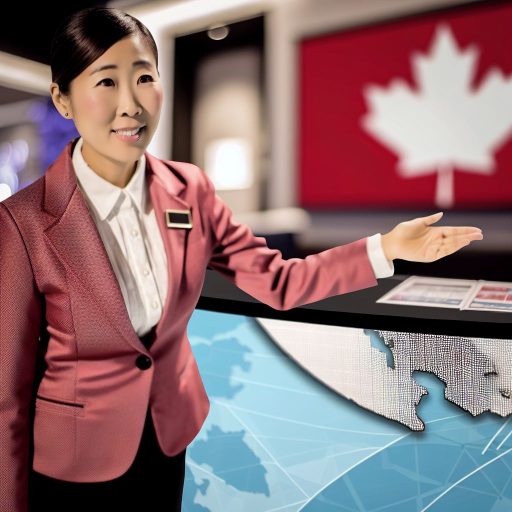Understanding the Importance of Effective Communication for Front Desk Agents
Role in Customer Service
Effective communication shapes the customer experience at the front desk.
Front desk agents act as the first point of contact for guests.
They set the tone for the entire visit.
Clear instructions and friendly greetings enhance customer satisfaction.
Impact on Operations
Communication directly affects daily operations at the front desk.
Agents must accurately relay information to and from guests.
They coordinate with other departments to fulfill requests.
Timely updates ensure that services are delivered effectively.
Building Rapport
Strong communication skills help agents build rapport with guests.
Personal connections lead to repeat business and referrals.
Engaging conversations create a welcoming atmosphere.
Positive interactions encourage guests to leave favorable reviews.
Handling Difficult Situations
Front desk agents often face challenging situations.
Clear communication can de-escalate conflicts effectively.
Agents should listen actively to guest concerns.
Offering solutions demonstrates empathy and professionalism.
Continuous Improvement
Effective communication is a skill that requires constant improvement.
Agents should seek feedback from supervisors and peers.
Regular training sessions can enhance communication strategies.
Incorporating new techniques keeps interactions fresh and relevant.
Active Listening Techniques to Enhance Customer Interaction
The Importance of Active Listening
Active listening significantly improves customer interactions.
It shows customers that you genuinely care about their concerns.
This technique enhances trust between front desk agents and clients.
Key Active Listening Techniques
Start by giving your full attention to the customer.
This means putting away any distractions during the conversation.
Unlock Your Career Potential
Visualize a clear path to success with our tailored Career Consulting service. Personalized insights in just 1-3 days.
Get StartedMake eye contact to demonstrate your engagement.
Use Verbal Affirmations
Respond with affirmations like “I see” or “I understand.”
These words reassure customers that you are listening intently.
Moreover, this encourages them to share more information.
Paraphrase Customer Statements
Summarize what the customer said to confirm understanding.
For example, you might say, “What I’m hearing is…”
This technique clarifies any misunderstandings early on.
Ask Open-Ended Questions
Encourage customers to express themselves more fully.
Open-ended questions invite detailed responses.
For instance, ask, “Can you tell me more about your issue?”
Body Language and Tone
Non-verbal communication plays a crucial role in active listening.
Maintain an open posture to show receptivity.
Additionally, using a calm and friendly tone can ease tension.
Dealing with Difficult Customers
Active listening is essential when handling complaints.
Stay calm and let the customer vent without interruption.
This approach helps de-escalate the situation effectively.
Practice and Feedback
Regularly practice active listening techniques among your team.
Seek feedback from peers to improve these skills continuously.
Consistent practice leads to more confident interactions.
Using Positive Language to Create a Welcoming Atmosphere
Importance of Positive Language
Positive language sets the tone for interactions at the front desk.
It creates a welcoming atmosphere for guests arriving at your facility.
Moreover, it fosters a sense of comfort and trust in the service provided.
Techniques for Positive Language
Start every conversation with a friendly greeting.
Use phrases like "How may I assist you today?" instead of "What do you want?"
Additionally, focus on what you can do rather than what you cannot do.
For instance, say "I can help you with that" instead of "I can't do that."
Empathy and Understanding
Showing empathy enhances communication significantly.
Listen actively to guests and acknowledge their feelings.
Responses like "I understand how that could be frustrating" build rapport.
This approach shows guests that their concerns are valued and heard.
Consistent Positive Messaging
Maintain a positive message throughout all communications.
Use uplifting language, especially during stressful situations.
For example, instead of saying "I'm sorry for the wait," say "Thank you for your patience."
This shift in language can influence the overall experience positively.
Training and Development
Regular training sessions can enhance staff skills in using positive language.
Encourage role-playing exercises to practice various scenarios.
Feedback on communication styles helps improve overall effectiveness.
Set clear expectations on the importance of positive language in service delivery.
Learn More: Leadership Strategies For Spa Managers
Non-Verbal Communication Skills: Body Language and Eye Contact
The Importance of Body Language
Body language plays a crucial role in effective communication.
It conveys feelings and attitudes often more powerfully than words.
Front desk agents should be aware of their own body language.
Open and welcoming gestures can create a positive atmosphere.
Smiling, nodding, and maintaining an upright posture enhance engagement.
Key Body Language Techniques
Consistent eye contact shows attentiveness and interest.
Avoid crossing arms, as it can signal defensiveness.
Leaning slightly towards the customer can indicate eagerness to assist.
Be mindful of facial expressions; they can express empathy or confusion.
Practicing these techniques fosters better customer relations.
Mastering Eye Contact
Eye contact builds trust between agents and customers.
It allows agents to read customer cues effectively.
Aim to maintain eye contact for about 50-70% of the conversation.
This balance prevents customers from feeling uncomfortable.
Break eye contact occasionally to ensure a natural flow.
Establishing Connections through Non-Verbal Cues
Pay attention to customers’ body language for hidden messages.
Mirroring a customer’s posture can make them feel at ease.
Identify discomfort signals and adjust your approach accordingly.
Using the right non-verbal cues enhances rapport with customers.
Ultimately, effective communication requires a blend of verbal and non-verbal skills.
Gain More Insights: Essential Tools for Modern Front Desk Agents
Techniques for Managing Difficult Conversations and Customer Complaints
Active Listening
Active listening builds rapport with customers.
It encourages the customer to express themselves fully.
Show genuine interest in their concerns.
Use verbal nods like “I understand” or “Go on.”
This assures them you are engaged.
Empathy and Validation
Empathizing is key to resolving conflicts.
Let the customer know their feelings are valid.
Use phrases like “I can see why you’re upset.”
This helps in de-escalating the situation.
Clear and Positive Communication
Use clear language to explain the situation.
Avoid jargon or technical terms that confuse customers.
Stay positive, even when addressing problems.
This approach fosters a constructive dialogue.
Troubleshooting and Problem Solving
Address the customer’s issue step by step.
Ask clarifying questions to understand better.
Provide options to empower customers.
Let them choose the best solution for themselves.
Follow-Up
Always follow up with customers after resolving issues.
This shows you care about their experience.
Ask if they need any additional assistance.
Following up builds long-term relationships.
Explore Further: How Technology Is Changing the Role of Front Desk Agents

Implementing Clear and Concise Information Delivery
Understanding the Importance of Clarity
Clear communication helps avoid misunderstandings.
It enhances customer satisfaction and loyalty.
Moreover, clarity saves time for both agents and clients.
Using Simple Language
Avoid jargon and technical terms when speaking with clients.
Instead, opt for straightforward language that everyone understands.
This approach fosters an inclusive atmosphere.
Structuring Information Effectively
Present information in a logical sequence.
Use bullet points to highlight key details.
Additionally, maintain a consistent format throughout communications.
Active Listening Skills
Practice active listening during interactions.
This allows agents to fully understand client needs.
Additionally, it promotes a connection with the customer.
Providing Concise Responses
Respond to customer inquiries with direct answers.
Avoid lengthy explanations that may confuse them.
Prioritize essential information to keep the conversation focused.
Using Positive Language
Frame responses positively to enhance customer experiences.
For instance, say “I can help with that” instead of “I don’t know.”
This technique builds a trustworthy relationship with clients.
Encouraging Questions
Invite customers to ask questions during interactions.
This demonstrates openness and willingness to assist.
Additionally, it allows agents to clarify any confusion quickly.
Learn More: Marketing Tips For Spa Managers In Canada
Cultural Sensitivity and Adaptability in Communication
Understanding Cultural Sensitivity
Cultural sensitivity involves recognizing and respecting the differences among cultures.
It fosters positive interactions between front desk agents and guests.
Being culturally sensitive enhances guest satisfaction and loyalty.
Therefore, agents must educate themselves about various cultural norms.
Adapting Communication Styles
Adapting communication styles ensures messages are understood and appreciated.
Different cultures may interpret verbal and non-verbal signals uniquely.
For instance, direct eye contact signifies confidence in some cultures.
However, it may be perceived as disrespectful in others.
Active Listening Skills
Active listening is essential for effective communication.
Agents should focus on understanding rather than just replying.
This technique helps to acknowledge guest concerns more fully.
Furthermore, it encourages guests to express themselves freely.
Building Rapport with Guests
Building rapport creates a welcoming atmosphere at the front desk.
Agents can start by using guests’ names during interactions.
Additionally, they can tailor their communication based on cultural preferences.
This strategy helps guests feel valued and understood.
Using Clear and Simple Language
Clear and simple language minimizes misunderstandings.
Avoiding jargon is crucial for effective communication with diverse guests.
Using straightforward sentences makes information accessible to everyone.
Moreover, it ensures that non-native speakers grasp important details.
Embracing Feedback
Embracing feedback is vital for continuous improvement.
Agents should encourage guests to share their experiences openly.
Listening to feedback aids in identifying areas for enhancement.
Consequently, it fosters a culture of respect and understanding.
Utilizing Technology to Improve Communication Efficiency
Implementing Communication Software
Front desk agents should adopt effective communication software to enhance their interactions.
Tools like Slack and Microsoft Teams streamline conversations among staff members.
These applications facilitate quick questions and immediate feedback.
Additionally, they help keep everyone informed about guest requirements.
Using Customer Relationship Management Tools
CRM systems play a critical role in managing guest interactions.
Agents can easily access customer histories and preferences through these platforms.
This information allows for personalized service, which improves guest satisfaction.
Moreover, prompts for follow-up interactions ensure consistent communication.
Leveraging Online Chat Functions
Online chat systems provide instant communication with guests.
These systems respond to inquiries without guests needing to wait.
Plus, chatbots can handle common questions, freeing up agents for complex issues.
This technology improves efficiency and enhances the guest experience.
Adopting Mobile Applications
Mobile apps allow front desk agents to communicate seamlessly on-the-go.
Agents can manage reservations, guest requests, and updates efficiently.
Real-time communication facilitates quicker responses to guests.
Additionally, mobile solutions increase overall productivity.
Training Staff on Technology Usage
Effective training ensures that every team member utilizes technology properly.
Workshops and online courses can enhance skill development.
Additionally, ongoing support helps staff adapt to new processes.
Emphasizing the importance of technology fosters a culture of communication.
Additional Resources
Maureen Grace Vargas – Front Desk Agent – Executive Hotel Le …
Front Desk Agent (Full-Time) job in Fairmont Royal York, Toronto …




